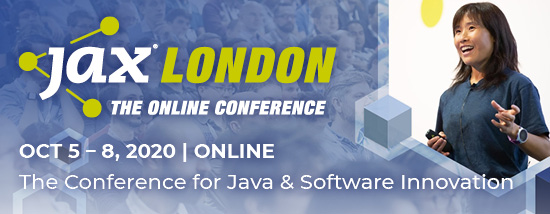A research study by The National Center for Women & Information Technology showed that “gender diversity has specific benefits in technology settings,” which could explain why tech companies have started to invest in initiatives that aim to boost the number of female applicants, recruit them in a more effective way, retain them for longer, and give them the opportunity to advance. But is it enough?
Four years ago, we launched a diversity series aimed at bringing the most inspirational and powerful women in the tech scene to your attention. Today, we’d like you to meet Bernadette Nixon, Chief Executive Officer and Board Member at Algolia.
Today’s Woman in Tech: Bernadette Nixon, CEO at Algolia
 Bernadette is an entrepreneurial & driven CEO with a strong track record of growing and scaling global businesses and is focused on doing that at Algolia. Prior to Algolia, she served as CEO at Alfresco where she led the open source content services provider in redefining its go-to-market strategy, launching strategic new products and building a world-class team to scale the company’s growth. Bernadette has also held leadership positions at SDL PLC., OpenText, Metastorm, CA Technologies, InterQuad, NCR, and the United Nations in Geneva. Bernadette received her BA in Business Studies and Marketing from the University of Hertfordshire.
Bernadette is an entrepreneurial & driven CEO with a strong track record of growing and scaling global businesses and is focused on doing that at Algolia. Prior to Algolia, she served as CEO at Alfresco where she led the open source content services provider in redefining its go-to-market strategy, launching strategic new products and building a world-class team to scale the company’s growth. Bernadette has also held leadership positions at SDL PLC., OpenText, Metastorm, CA Technologies, InterQuad, NCR, and the United Nations in Geneva. Bernadette received her BA in Business Studies and Marketing from the University of Hertfordshire.
Algolia provides an API platform for dynamic experiences that enable organizations to predict intent and deliver results. Algolia achieves this with an API-first approach that allows developers and business teams to surface relevant content when wanted — satisfying the demand for instant gratification — and building and optimizing online experiences that enhance online engagement, increase conversion rates, and enrich lifetime value to generate profitable growth. More than 10,000 companies including Under Armour, Lacoste, Birchbox, Stripe, Slack, Medium, and Zendesk rely on Algolia to manage over 1.5 trillion search queries a year. Algolia is headquartered in San Francisco with offices in New York, Atlanta, Paris, London, and Bucharest. To learn more, visit www.algolia.com.
When did you become interested in technology? What first got you interested in tech?
I’ve always been fascinated by technology. When I was living in Switzerland in the mid-’90s, it was the advent of the world wide web, and I had the opportunity to go to The European Organization for Nuclear Research, known as CERN (the particle accelerator organization in Geneva), and meet with the team that was developing Mozilla, which was the precursor to the modern-day browser.
How did you end up in your career path? What obstacles did you have to overcome?
I’ve come up through the ranks mainly on the go-to-market side of the business, but I always took rotational positions to round out my experience. For example, I spent time at the UN running a large part of their IT operations, and I took a marketing leadership position here in the US, which enabled me to do the role that I loved for many years – the Chief Revenue Officer role – and I was better for the experience.
In terms of obstacles… My mind is constantly on overdrive, in that I view obstacles as unavoidable opportunities to learn.
Did you receive support from your family and friends? Do you have a role model?
I wouldn’t say I’ve had one mentor above all others in my career, I’ve had good role models in business, like George Fischer who was the EVP Worldwide Sales & Services at CA Technologies, who I reported to on and off for about 8 years and from whom I learnt the importance of customer centricity. Also, Mark Lancaster, a great entrepreneur, who taught me the importance of long term thinking. But frankly, there have been many others along the way.
Did someone ever try to stop you from learning and advancing in your professional life?
I’ve been lucky, but that said, like many of your readers I can point to one person, who shall remain nameless, who tried to stop me in my tracks, for no other reason than… I was a woman. He’d done it to many others before me and yet I thought I could solve the problem and overcome the issues. Turned out I did make significant progress with him, but at the end of the day I was miserable. I’m usually a pretty good problem solver, but this experience taught me you can’t solve every problem – which I know is obvious, but when you’re so far down that rabbit hole you sometimes lose perspective on what’s important.
My advice to anyone who finds themself in this situation is to take back control and do something to change your situation. The other thing to remember is that you can’t always see the good that comes from a tough situation when you’re in the middle of it, but I grew a lot in those couple of years, which has helped my career.
My advice to anyone who finds themself in this situation is to take back control and do something to change your situation.
A day in Bernadette’s life
I’ve been the CEO of Algolia since May of 2020, so I joined in the middle of the pandemic. That had some unexpected advantages, believe it or not, for example – normally I’d be introduced to the company in our HQ which is in San Francisco, and everyone in the other locations would likely feel disconnected or disenfranchised. The pandemic leveled the playing field and I saw everyone for the first time on Zoom.
We have major operations in Europe, and across all the time zones to the west coast, so my day typically starts at 8am with meetings, but I’m online before then, and I run until 6pm or often later. The last few weeks I’ve been on the road for the first time in a long time, in the UK, Paris, and San Francisco meeting with our teams, customers and partners – it was fabulous to meet people face to face again!!
What are you most proud of in your career?
I’m proudest of the accomplishments of my teams over the years, and enjoyed celebrating those milestones with them. If I had to pick just one achievement in my career, I’d choose a major change I made, in fact 4 major changes I made simultaneously. When I moved from the UK to work for the United Nations in Geneva, Switzerland, I changed the sector I worked in from private to public, changed career from sales into IT, changed the country from the UK to Switzerland and changed the language in which I operated day-to-day from English to French, all at once. It was exhilarating, and it showed me that it was ok to take risks. And it gave me the opportunity to walk in the shoes of the people I’d been selling software to previously, which gave me a newfound empathy for IT professionals, which proved invaluable in my subsequent roles in the US.
Why aren’t there more women in tech? What’s your take on that?
There really is no single answer to this question, indeed there are several factors at play. I think the early days of women not being actively encouraged to pursue STEM subjects at school and university (and even earlier socialization) has taken a very long time to unravel (and there’s still a long way to go), but equally, there’s been a general dearth of interest from women for the tech industry (with fewer women studying STEM subjects, employers are unavoidably facing a gender-biased talent pool from which to recruit). More recently though, I’m happy to say that’s changing, especially now that so many companies have pivoted toward digital, remote work…
Could you name a few challenges (or obstacles) women in tech face?
Most people want to feel like they “belong” with their colleagues and at their company, and feel like they can be their real self at work. So certain environments – be it companies, geographies, industry associations/groups, etc. – that tolerate micro-aggressions, ‘bro cultures,’ or other less inclusive behaviors make it hard for many women to feel a sense of belonging.
Would our world be different if more women worked in STEM? What would be the (social, economic and cultural) impact?
The reality is that women have created many significant advancements in technology and are already making a difference – perhaps they’re not as famous as some of their male peers. Consider for a moment these trailblazing women – Susan Kare (the designer who helped bring the Apple computer to life with her sophisticated typography and iconic graphic design skills); or Hedy Lamarr (actress and co-inventor of the technology used to help the Navy remotely control torpedoes); and Grace Hopper (a programming pioneer who designed FLOWMATIC language, later to become COBOL); or Radia Perlman (a networking maven who helped make Ethernet technology a household name with her Spanning Tree Protocol); and Marissa Mayer (Google’s first female engineer, former Yahoo CEO and highly talented user interface designer and product visionary) and so many more.
Women make up half of the world’s population consequently, employing women to design and develop products and services that cater to their needs is the best way to convert these end-users to customers – that’s real economic impact.
Women make up half of the world’s population consequently, employing women to design and develop products and services that cater to their needs is the best way to convert these end-users to customers – that’s real economic impact.
The discussion about diversity is gaining momentum. How long will it take to see results from the current debate?
The bottom line: Diversity fosters creativity, which can introduce distinct and different points of view. With their perspective, women’s engagement in the workplace can inspire intense brainstorming and competitive problem-solving. With this, we get better outcomes, more ideas and different answers; we would be looking at challenges from multiple vantage points. A diverse employee base generates a more attractive workplace, which will strengthen a company’s position and attract both new talent and customers. I don’t know how long it will take, but my opinion is that as a human race we should be better by now. This means we all have to do our part – whether that’s in the hiring process, or to empower and give a voice to underrepresented groups. And this is something that requires progress daily because there is still so much to do.
What advice (and tips) would you give to women who want a tech career?
It’s an exciting industry, and with technology cycles shrinking, you’re always at the forefront of innovation. This means you need to be comfortable with change and a fast-paced environment.
There’s more to tech than the tech roles – there’s marketing, sales, customer success … There are many ways to participate.
Take the hard assignments and don’t be afraid of taking risks — you’ll grow from them and will be respected for it.
More Women in Tech:
- Women in Tech: Sara Boddy, Senior Director F5 Labs
- Women in Tech: Amelie Lang, Product Manager for web, MEW, and CMS at kicker
- Women in Tech: Susanna Lawson, CEO and Co-founder of OneFile
- Women in Tech: Richa Dhandhania, Head of Analytics, Raisin DS
- Women in Tech: Miriam Bressan, Manager Solution Engineering, Global Accounts in CEMEA and SEMEA at VMware Tanzu
For even more Women in Tech, click here
The post Women in Tech: “Take the hard assignments and don’t be afraid of taking risks” appeared first on JAXenter.
Source : JAXenter




















